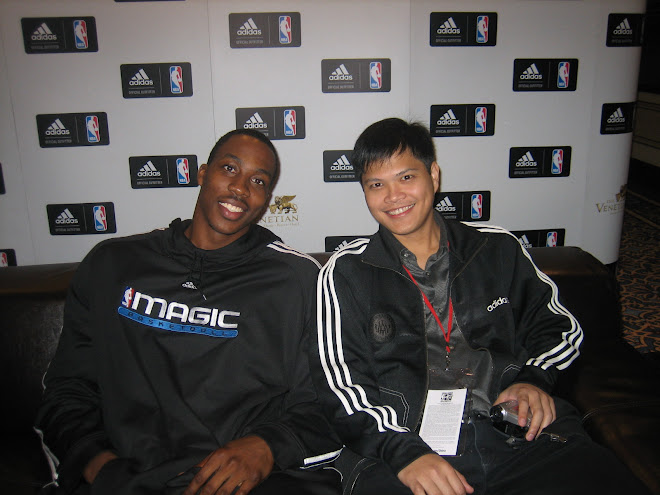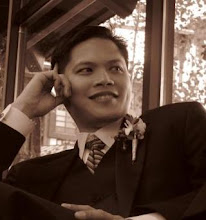

A few hours after touchdown from Beijing, I was off again to Macau to join the PBA Board of Governors in their annual planning session hosted by Solar. I presented the plans for the upcoming season and it seemed they were happy with it.
Personal accounts, experiences and opinions on media and sports as a media practicioner in the Philippines.





A lot has been said about the recently concluded Beijing Olympics. Mostly good and positive, but some not so positive statements have also been thrown out there especially when referring to the Philippine’s non medal performance. The blame game started a few weeks ago and continues in the aftermath.
All I can say is that the Olympics experience in China was one to cherish and learn from in terms of pushing the limits and being the best. The organization of the games was practically flawless in all aspects and if China needed an event to declare their status as a world player, then the Olympics did the job.
During the four (4) hour plane ride back to Manila, it was actually an interesting exercise to dream of a scenario where the Philippines was host to the Olympic Games. What would it take for it to happen? After going through the factors involved, it got a little depressing.
First off, we would need an airport that can take in almost three (3) million visitors who will watch the games. The Ninoy Aquino International Airport (NAIA) only has one runway and will not hold up to that many visitors arriving in such a short time span. Beijing created a terminal just for the Olympic family arriving with dedicated immigration lines and baggage pickup. There were over 10,000 athletes and over 20,000 media personnel accredited with a lot more officials and coaches from all countries involved. It took almost a decade to open a terminal significantly smaller in size here so an airport in the Philippines to accommodate this in unlikely.
Then there are the accommodations for all involved. The athlete’s village in Beijing consisted of luxury condominiums complete with amenities like swimming pools, weight rooms, and restaurants about a kilometer away from the Bird’s Nest Olympic Stadium. A good comparison would be the Rockwell group of condos in Makati City. The media village was similar although farther away from the action about twenty (20) minutes away by bus. Unless all the residents of Rockwell agree to move out and give way to the athletes, then the Philippines being able to house the Olympic family is again unlikely. That doesn’t even take into consideration the shortage of hotel rooms for the millions who will come and watch.
The venues and facilities for the games were very impressive. The bird’s nest stadium was state of the art with awesome audio visual facilities. The water cube was an architectural marvel and a sight to be behold inside out. It really is unfair to even try to describe how incredible the structures were in Beijing. All facilities were overwhelming. The closest we have would be the Araneta Coliseum which can be adequate for the basketball games but it would still need an upgrade in the LED and audio system, media positions and upgraded locker rooms. We don’t have anything else that comes close and would have to build from scratch for all other venues.
The transport system was also something to applaud. The whole city had Olympic lanes to avoid traffic for all accredited vehicles from one venue to another. That would never fly in Manila. There were hundreds of busses deployed so that at any given time, accredited personnel can catch a ride from one venue to another. The Olympic ID allowed free use of all public utility vehicles in the city. I can’t even begin to try to figure out how to fix our transport system in the Philippines.
Then there’s the International Broadcast Center (IBC), where the international media can go and get information about all the games in all the venues. There were countless workstations, LCD screens, books, flyers, and everything else needed to be able cover the games. Hundreds of buses were in place right outside for immediate deployment to all relevant venues. The Philippine International Convention Center (PICC) would be the closest we have if it was wired with thousands of monitors, millions of feet of wires, and dozens of satellite dishes.
The one component I think the Philippines might be able to match is the participation of 500,000 volunteers spread throughout the city to help out during the games. Their contribution was just as valuable as any of the first class venues and high tech equipment used in the 17 day span. I believe that the Philippine culture and spirit is up to the challenge and can even surpass the hospitality shown by the Chinese people.
It doesn’t cost anything to dream and we can only hope that our country figures out how to eventually succeed in sports on the world stage.


There is something about embarrassment that drives the motivation of men with character. The memory of humiliation burns in their souls and drives them to do whatever it takes to seek salvation from discomfit.
The USA Basketball Team was pretty dominant most of last century when even college players was enough to be the best in the world. But when Team USA lost in the 1988 Olympics, a whole nation got indignant and clamored for the country to send their best, which were the NBA superstars. So the “Dream Team” was created for the 1992 Olympics with Michael Jordan, Magic Johnson, and Larry Bird leading the way. Almost everyone on the team was an eventual Hall of Famer. They blew out every team they played in Barcelona on their way to a gold medal. Mission accomplished. Redemption for Team USA.
For the next decade, the rest of the world slowly got more exposure and although Team USA was still sending NBA players, some Amercian stars started to give excuses for not committing to the cause.
We started to see the emergence of non Americans in the NBA as all stars. Names like Dirk Nowitski, Yao Ming, Pau Gasol, Manu Ginobili, and Tony Parker started to turn some heads after the turn of the century. Even non allstars like Andrei Kirilenko, Leandro Barbosa, and Andrew Bogut started making an impact in the league.
The red flags started in 2002. While the subsequent teams in the 1996 (Atlanta) and 2000 (Sydney) Olympics won gold, the gap was slowly being closed from 1992. While playing in front of their home crowd in Indianapolis at the 2002 World Basketball Championships, the USA team finished a dismal 6th. The country who invented basketball was demolished in their backyard. NBA talent alone was not enough anymore. The rest of the world made a statement that basketball was a team sport and you can overcome athletic ability with beautiful, harmonious team play.
So while the American players were blurting out more excuses for not joining the 2004 Athens Olympic team like security and the need for off season rest, the other countries used the biggest sporting event in the world to show the world that they were the best, and that playing for their country was still a top priority. Led by then teenager Lebron James, Team USA barely came home with the bronze medal. “Lebronze” became the chant as the team even lost to Lithuania in the first round and eventually got eliminated from contention by gold medal winner Argentina.
After the Athens debacle, Gerry Colangelo, the Phoenix Suns GM volunteered to rebuild Team USA using his knowledge of the international game. He knew that Americans still had the best talent but had to change a lot in the attitude, mindset and system being used to build the team. He needed commitment, not excuses. He spoke with each player he recruited individually and made sure that those that were chosen understood what it was going to take. He chose Mike Krzyzewski, the best college coach in the last 25 years to lead the team back to glory.
The first test was the World Basketball Championships in 2006 held in Japan. After cruising through the first phase, they were shocked by Greece in the semi finals. That last loss hurt like a dagger through the heart. It hurt enough to get the same kind of indignation when the Soviet Union shattered Team USA’s invincibility back in 1988. The anger and fury can be felt with how each player has committed himself to the cause. You know the dedication is there when the best offensive player in the world in Kobe Bryant commits to being the defensive stopper of the team.
If the commitment is not enough, there are other reasons to think that the gold will be back in America’s hands in Beijing. This team will have had about 30 games together which creates the familiarity necessary for team chemistry. Dwayne Wade says “it’s a total 180 since the team has been together 3 years compared to 3 weeks in 2004.” The same concept is true with their adversaries. Many of the opponents’ players now play in the NBA so individually, there are now very little surprises. Each player’s style and tendencies should be more familiar now that they play at least 82 games in the NBA.
There are still concerns about the size inside but overall, this is the most physically and mentally prepared team since 1992. The combination of talent, commitment, chemistry, and resolve are indeed enough for the “Redeem Team” to live up to its name.



